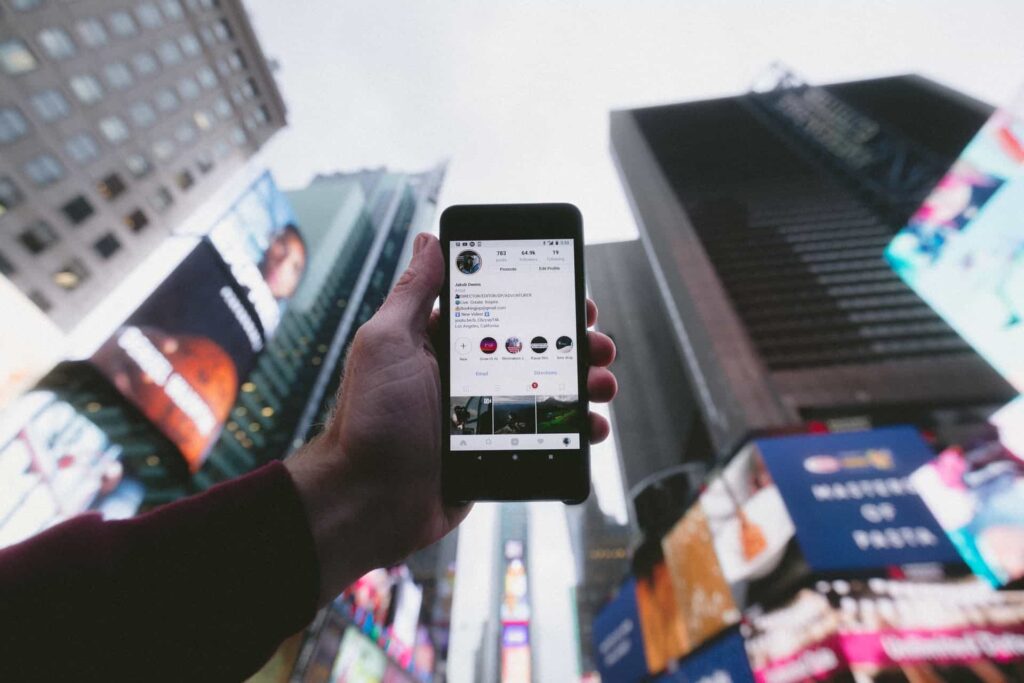Social media, aka what we call the “world wide web” is a very important tool in our lives. It can be used for everything from business to relationships to just a simple chat with a friend.
However, with all the benefits of social media comes some drawbacks. Social Media can be a huge distraction when it comes to studies and productivity. It can be so tempting to check your Facebook or Twitter feed when you should be studying, but it’s important to stay focused on school work.
There has been plenty of research on the negative effects social media can have on academic performance, but now it’s time to take action.
We all know that we should spend less time on our phones and more time studying, but how?
In this blog post, I will show you 8 strategies for avoiding social website during your studies so that you can have more productive time and not let yourself get distracted by social media sites. So, read on!
Why Social Media Can Be Distracting
Social media is a tempting distraction, but it is so important to study during university. It’s important to remember that social website is a time suck and to be careful about how much time you spend online.
Social media can easily distract students, especially if they aren’t taking notes or reading up on the topic for the semester.
The best way to avoid social media during study is to set a schedule for yourself and stick to it. You can do this for every class, if you want.
Start the day by posting to social media and then don’t use social media until the night before or during break. This is a great way to force yourself to study before you get distracted by other things online.
Social Media and the Brain
Research shows that social website distracts people from studying, and can increase the amount of time people spend online, reports NPR.
Even though it’s tempting to check in with what your friends are up to when you’re doing homework, a 2014 study showed that social media use and feeling more connected to your friends is often a bad thing.
This is because “new friends [were] motivated by a desire to acquire information about the information obtained from the existing network, and experienced social connectedness was valued more than knowledge,” the study said.
Still, social media is a necessary part of your everyday life. Most of your contacts, especially your college and your high school friends, are on social website.
How to Limit Your Social Platform Usage
Students need to stay on top of all of their deadlines, and social media can be a huge distraction for any young student. Don’t succumb to the temptation to check your social media every five minutes, and try limiting your usage during exams.
In order to stay on track with all of your study deadlines, set a limit for social platform use during study hours. Decide how long you should spend on each social media site and stick to it.
Checking your social network feed is almost an instinct, but it is important to catch yourself and make sure you are on track with your study requirements. However, if you do stumble upon a new profile, it is a good idea to click away. Chances are that you’ll have plenty of time to catch up later.
Trick Yourself to Avoid Latent Social Media Temptations
One of the biggest pitfalls that most students, and people in general, fall into is posting when you’re supposed to be focusing on school work.
You can train yourself to automatically avoid this pitfall by treating social media like you would your favourite junk food.
Social media companies like Facebook and Twitter know that we spend a lot of time on their platforms, so they reward us with social points for logging on to their sites.
You can see what I’m talking about by looking at your Facebook page, or by logging on to any social network that has an expiry timer. Social media companies know that we’re hooked, so they’re going to reward us for our time.
How to Avoid Studying-Related Pitfalls with Social Media
To avoid studying-related social platform distractions during study time, consider the following points.
Limit time spent on social media to a short period, perhaps a few minutes every two hours.
If you’re avoiding using social network during study, this might be enough for you.
Take breaks, especially if you’re using social platform while studying.
Try using the Pomodoro Technique.
Write your text into a notebook first, then cover it in orange pen or colored highlighters. Keep writing, or keeping your mind focused, for 30 minutes, and take a short break.
Remember, social media is distracting. You’re trying to learn a topic while trying to ignore the distraction of another activity. Set rules for yourself about what you’ll and won’t look at.
Strategies for Specific Situations
When you’re at work or busy at home, as much as you’d like to check your social media accounts, you shouldn’t. It could be a distraction that keeps you from being productive, and you might get a big dose of information overload if you go straight to social media and forget what you’re supposed to be doing.
The last thing you want to do is lose focus in a job interview or an important essay assignment. If you’re working out or doing another activity, you shouldn’t skip out on studying because you’re catching up on your friends’ lives on Facebook.
Remember, Facebook is just another way to communicate with your friends and family, and getting all of your updates can help you stay in touch.
You can’t really study without checking Twitter or Facebook. However, don’t use this opportunity to compare your social network feeds with others.
If you’re not on your social platform pages at the same time, you won’t know what the other students in your group are doing. Also, avoid using public events, such as concerts or even a social gathering, as an excuse to go on social network.
Going on social media right after the event will actually decrease your progress on your project.
You’re frustrated with a major aspect of your project or research and want to get it off your mind. Going on social media will give you a new distraction, as well as a distraction from your project. Stay away from social platform if you are working on something important.
If you’re in a lecture and you need to take notes, just find your notes in Google Drive or another note-taking app, or write down the information from the lecture on your laptop so you can refer to them later.
Don’t Check Twitter or Facebook During Lectures (or Studying or Reading, for that matter): the time your phone is away from your hands is best spent actually studying.
Reading a book of (or even an entire blog post or article) can be great for your learning. However, unstructured reading isn’t for everyone. For those people, a break every 20-30 minutes or so is advisable to avoid multitasking and get some fresh air, listen to something you enjoy, or otherwise spend some time with your body.
If you know you’re going to be busy with your studies, but you still need to check your social media, you can either switch off your access or log out of social media.
To log out of social media and social networking sites, go to your settings and click the option to disable it.
You can change your social media settings so that your page isn’t visible on your profile but instead is just there as a link to what you are looking at, so that you don’t accidentally look at posts or follow strangers.
But if you do want to check in and see what’s going on, a handy trick is to go to your Facebook page, and just like when you post something you think other people will like, a little “like” button will appear.
Related Blog: How to Improve Your ‘Spoken English’
What’s the right amount of time to spend on social media?
It’s quite hard to measure the amount of time you spend on social media, but it’s definitely something to think about.
There is no doubt that studies can be mentally challenging, but social media can be a distraction if you let it be. Checking social platform too often means it’ll consume your time, and you may start getting distracted or feel drained from reading hundreds of tweets.
If you’re often unable to resist social media, you should think about the time you spend on it and limit yourself. Multi-tasking can be great in some circumstances, but it can take a lot of time and energy. The same goes for social media.
Most students should set an hour-long limit per day, or try to stay away from social media during the week. If you are constantly on social platform, it can distract you, make you feel stressed or anxious, and affect your studies.
When To Spend Time On Social Media
No matter what time of day you’re on social website, it can take a toll on your mental health and academic life.
Try to stay away from it as soon as you wake up, or the minute you get home from school or work.
If you try to stay away for the rest of the day, you’re not only ignoring how you feel about social media, but you’re also setting yourself up for stress and anxiety the next day, or even the next week.
Stay away from people’s posts on social media that might trigger emotions or urges
Whether you’re scrolling through your timeline or you open a friend’s page, there will be something there that makes you want to look away.
Look out for posts that make you angry or sad or make you feel scared, such as baby photos or people grieving, because these posts might make you want to get on Facebook and post something about your own feelings.
Also, avoid looking at anything that makes you happy, whether it’s a friend’s birthday post or a post about the party you’re attending. All these posts will make you want to get on Facebook to share your own happy memories with your friends.
Get emotional support from friends and family on Facebook and Instagram
If you can’t handle yourself without checking your social media, talk to your friends and family on Facebook or Instagram for support.
They’ll understand what you are going through if you talk to them. Plan ahead and schedule periods when you won’t check your social media. Before studying, write down all the time periods when you will be active on social media.
Try to block out hours when you will do school work and those when you will be active on social media. Make sure you have a reliable internet connection. It’s tempting to go online to see what’s going on, but make sure your internet connection is stable. If it goes down, you could lose your study time.
Use the best apps to avoid social media during studies
Sites like timehop and retroshare make it easy to look back at your recent activities on the internet, letting you avoid scrolling past your social media updates and notifications.
With a timehop, you can see what your day was like on any particular date in the past, and retroshare lets you search for images or even post statuses that you posted years ago.
The apps make it easy to avoid using social media or social media platforms altogether and focus on school work. They can also be used to help you better understand your social media use, and you can even go back in time and see how you used to behave on Facebook or Twitter.
Avoid checking your news feed: You don’t want to see new posts from your friends that you haven’t seen in a long time.
Find an alternative way to access social media when you’re studying: Use email, which is less distracting and offers a safe zone in which to take a break. Install a timer on your phone that lets you know how long you have been studying and how much longer you have to go. This is a safe time when you can get your phone out.
Apps that can help with mood during studies
I use a mood tracker to help me to see if my mood matches up with my study habits. It provides an in-depth look at your daily activities, and gives you data on whether you’re making the right choices for your happiness.
If you feel like you’re in a rut, there are lots of apps that can help you find a healthy balance between fun and productivity.
How to have healthy social media habits during studying
Sometimes the temptation to check your social media feeds can be very strong. If you find yourself swiping left and right while you should be focusing on your books, there are ways to change your behavior.
You can set boundaries around your social media usage by choosing a study time and a social media time.
Create a habit out of studying, not tweeting or instagramming
A simple way to avoid social media when studying is to set a rule for yourself. For example, if you need to focus, then you can only check Facebook or Twitter for a specific amount of time (such as 10 minutes) before you move onto the next task. It might be a bit tough at first, but you’ll soon find that it’s much easier to stay focused without being distracted by your phone.
There are times when you can’t help but wonder about the latest tweets or instagram photos of friends, so it’s easy to turn to social media instead of doing your work.
But if you’re too busy to stop and think about whether you actually want to spend time on social media or study, you may end up doing neither. Self-discipline is one of the most important skills you can learn for any career.
Put your phone on airplane mode
This is probably a good rule for all cellphones, but it’s especially important for social media. Turning your phone into airplane mode prevents your phone from being able to send and receive data, so you don’t get tempted to use it.
Cancel all your notifications
You’re probably already following people on Instagram, Facebook, Twitter and other social media, but you might still get these notifications. Keep the notifications from Instagram, Facebook, Twitter, LinkedIn, and so on to a bare minimum so that you don’t get distracted by any of them.
Use social media apps strategically
Having access to a Twitter or Facebook app on your phone can be great for staying in touch with friends and family when you’re away from home, but it’s not the best thing to do when you’re trying to study.
This way you can block certain apps when you’re doing your work, and you can use social media apps only when you’ve finished with school work.
Try to have a schedule
Just as with anything else, try and set aside a fixed amount of time each day to be on social media. It’s tempting to spend your time surfing social media, but if you don’t set yourself a limit then you’ll find yourself checking in to catch up with friends and family when you should be doing school work. Try to stick to a schedule so that you’re only checking in once a day.
Related Blog: How To Manage Your Time As A Student
Conclusion
An online presence can be beneficial to young people if they are proactive about it. The tools are available to help people stay aware of any scams or any other potential threats. This doesn’t mean that social media is the enemy – in fact, some of the strategies can help us to be more socially responsible.





